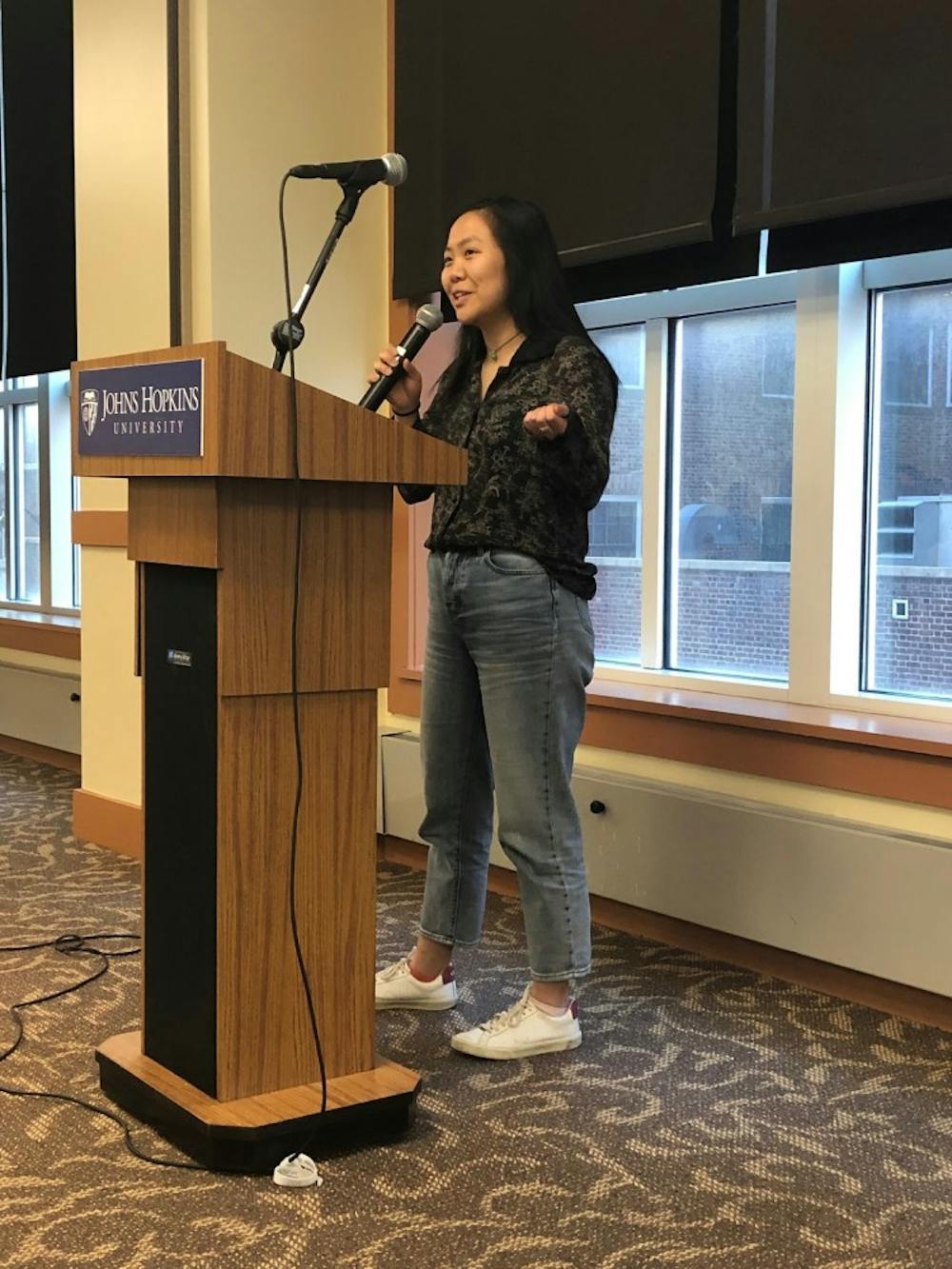Students hosted the second “Lunchbox Moment” event on Monday night at the Charles Commons Salons. The event, whose title refers to the common experience of shame shared by Asian Americans when they bring cultural food to school, was organized by 10 Asian American students to create a space for both Asians and Asian Americans to discuss interracial dating, a racialized food system, navigating between Asian and Asian American identities, and inequaity within Asian American communities.
Senior Evelyn Yeh joined the organizing committee this year after attending the first Lunchbox Moment event last year. The event appealed to her due to the lack of events devoted to Asian American experiences on campus.
“The event rose from a need to hear about Asian American experiences on campus, and nobody was really providing that last year,” Yeh said. “We did not have any topics that we had in particular, but we just wanted to cover the general Asian Pacific Islander experience. Whatever the speakers came up with, we rolled with. We wanted to make sure that they were talking about things they were interested in.”
As per the title of the event, senior Clarissa Chen spoke on how, under white supremacy, the food system operates to hurt Asian culture. She urged Asian Americans to act in solidarity across movements for social justice and celebrate identities in a holistic expression.
“I have many fond memories cooking food with my family as a little kid. We always found ourselves re-convening around food,” Chen said. “When I was young, I wanted to be more American; I stopped speaking Mandarin; I was ashamed to eat Taiwanese food. From a young age, my dad always stressed the healthy benefits of green tea leaves, but it was not until mainstream culture started validating them that I started to appreciate green tea.”
Chen then went on to talk about how to reclaim and embrace cultural diversity by challenging mainstream culture.
“It was a realization that I already knew, that food has so much ancestral knowledge, but I let mainstream culture tell me what’s real. In this sense, food is so often diminished in value until capitalism touts it as a trendy new cool food,” she said.
Chen stressed the importance of maintaining one’s culture without dominating or condemning another culture.
“I want us to remember: We don’t overcome oppression by becoming the oppressor. We need to de-center the experience of being a white man. We need to liberate our minds so that we access what we were made to lose. We need opportunities to do more than just survive in white supremacy but also challenge it,” she said.
According to Yeh, one thing that the organizing committee was mindful of was including the voice of the Southeast Asian community, since Northeast Asian and South Asian communities often dominate the media coverage of Asian American identities.
Sophomore Charlie Nguyen, who was one of the speakers at the event, spoke about the history of inequality within the Asian American community.
“Complex histories create the East Asian privilege we see today,” he said. “Stark economic inequality exists within the Asian American community, between East Asian Americans and Southeast Asian Americans.”
According to Nguyen, this rift is manifested by the way in which Korean and Chinese associations try to actively bar Southeast Asian Americans from economic and educational opportunity.
“Korean and Chinese associations fight against diversity initiatives because they do not want to risk any chances of their kids not getting accepted into prestigious colleges. ICE [U.S. Immigration and Customs Enforcement] is breaking Southeast Asian families apart. When we paint Asian Americans in the aggregate, as the ‘model minority,’ we dismiss the inequality that exists within the group. There are structural patterns that keep Southeast Asian Americans invisible,” Nguyen said.
As a Vietnamese American and member of the Southeast Asian community, Nguyen then drew a personal connection to these issues of inequality with the broader illusion of unity within the Asian American community.
“Our parents came here not just as immigrants who want better jobs but as refugees fearing for their lives. ‘Asian American’ is a term imposed on our community. It offers an illusion of unity, when in reality, the label doesn’t want us. It doesn’t want me,” he said.
June Oh, a member of the Inter-Asian Council, attended the event for the first time this year. As a South Korean international student, he strongly identified with Rachel Ye, a Korean American speaker who discussed navigating dual cultural identities.
In her speech, Ye criticized the racist emphasis on accents by sharing how Asians with accents are considered less credible.
Oh himself once struggled with this stigma surrounding accents, especially because he felt that people didn’t understand how he could speak English fluently without identifying as a person from an English-speaking country.
“I used to have a Midwestern accent, and it really confused people. It confused people that I was fluent in English, but that I actually fully identify as South Korean. I was constantly having to make myself culturally legible — either South Korean or American — for people around to understand how to interact with me,” Oh said. “It was nice to hear about individual identities, and that I have people I can relate to on similar experiences.”
Editor’s note: Editors-in-Chief Kelsey Ko and Morgan Ome were involved in organizing the event. Neither of them were involved in the reporting or editing of this article.
Correction: The original article incorrectly identified one of the speakers as Rachel Lee. Her name is actually Rachel Ye.





